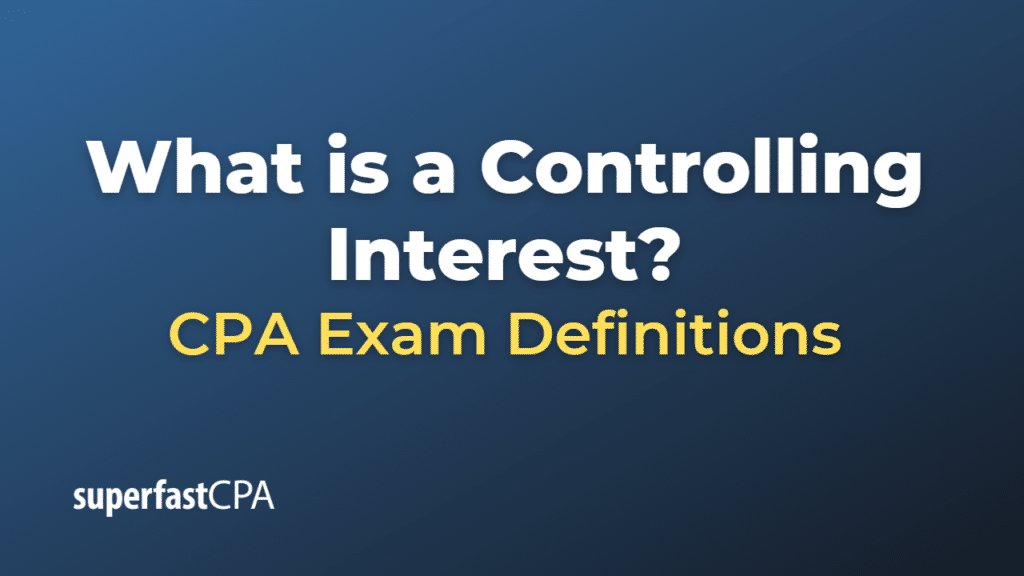Controlling Interest
A controlling interest is a situation where an individual, entity, or group of investors holds a majority of the voting shares in a company, giving them significant influence over the company’s management and decision-making processes. This majority ownership allows the controlling party to exercise control over the company’s operations, including the appointment of key management personnel, approval of major corporate actions, and setting strategic directions.
Typically, a controlling interest is achieved when an individual or entity owns more than 50% of a company’s voting shares. However, in some cases, effective control can be established with a lower percentage if other shareholders are widely dispersed or inactive in decision-making processes.
Owning a controlling interest can provide several benefits, such as:
- Influence over the company’s strategic direction and management decisions.
- Ability to shape the company’s financial policies and distribution of profits, such as dividends.
- Control over the composition of the company’s board of directors.
- Potential for increased financial returns if the company’s performance improves under the controlling party’s management.
However, owning a controlling interest also carries responsibilities, as the controlling party has a duty to act in the best interests of the company and its shareholders. This includes making decisions that promote the company’s long-term success and financial stability, as well as ensuring transparency and compliance with applicable laws and regulations.
Example of a Controlling Interest
Let’s consider a hypothetical example involving a controlling interest:
Company ABC is a publicly traded technology firm with 1,000,000 outstanding shares. An investment group, XYZ Capital, decides to acquire a significant stake in Company ABC to gain control over its strategic direction and operations.
XYZ Capital purchases 510,000 shares, representing 51% of Company ABC’s outstanding shares. With this majority ownership, XYZ Capital now has a controlling interest in Company ABC. As a result, they can exercise significant influence over the company’s management decisions, strategic direction, and financial policies.
By having a controlling interest, XYZ Capital can:
- Appoint members to Company ABC’s board of directors, allowing them to influence the company’s governance and oversight.
- Influence major corporate decisions, such as mergers and acquisitions, capital expenditures, and dividend policies.
- Guide the company’s strategic direction, potentially focusing on new markets, products, or services that align with XYZ Capital’s investment objectives.
- Implement changes in the company’s management team, if they believe new leadership is needed to improve the company’s performance.
In this example, XYZ Capital’s controlling interest in Company ABC allows them to shape the company’s future and potentially benefit from any improvements in its financial performance. However, it’s important to note that XYZ Capital also has a responsibility to act in the best interests of all shareholders and to ensure that their decisions promote the long-term success and stability of Company ABC.













